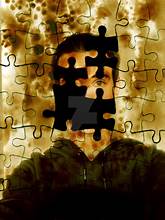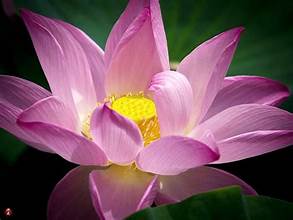
One of the most difficult undertakings of your life is to consistently be yourself. It is at once the simplest and the most complicated task. I expect that when we are being ourselves completely, it will be the most natural thing we could do. When we aren’t, being ourselves isn’t only challenging. It can be obscured by a complex network of falsehoods built on illusion and lies. In this post, I want to explore how this can be and maybe provide a clue to sorting it all out.
A Gaggle of Theories
Let’s start with a few sayings you’ve probably heard which attempt to sum up who we are. For instance, “You are what you eat.” I hope not. Then there’s, “You are your memories.” Where’s the logic in that? “You are a sum of your experiences.” This would suggest you are an effect point of stuff that happens and you are forever changing.
Here are some thought provoking quotes from some pretty smart people:
“Most people are other people. Their thoughts are someone else’s opinions, their lives a mimicry, their passions a quotation.”
― Oscar Wilde, De Profundis
“We experience ourselves, our thoughts and feelings, as something separate from the rest. A kind of optical delusion of consciousness. This delusion is a kind of prison for us, restricting us to our personal desires and to affection for a few persons nearest to us.”
― Albert Einstein
“I am my own experiment. I am my own work of art.”
― Madonna
“Feelings are something you have; not something you are.”
― Shannon L. Alder
“I am no bird; and no net ensnares me: I am a free human being with an independent will.”
― Charlotte Brontë, Jane Eyre
Oh, the food for thought. Some very interesting stuff there, so I’m going to weigh in with my own views briefly. While Oscar Wilde always has an interesting take, I think he goes too far with this one. Most people may be using other people to make up their own identity, but it isn’t their true identity. I maintain there is a true self at the bottom of it all. Einstein seems to be saying our sense of separateness from anyone beyond ourselves and our loved ones is a delusion that keeps us from a complete sense of self. It’s an astute observation. I like Madonna’s slant because she understands she is a work in progress and takes her life as an art form. The only part of it that troubles me is her approach seems to be about creating her persona, but not necessarily reaching her true self, the spiritual being. Shannon L. Alder’s statement amplifies Einstein’s and addresses the spirit Madonna’s doesn’t. Charlotte Bronte is brilliantly direct in declaring identification as a free human being with an independent will, not ensnared by any trap that comes along. That, I believe, is a good start toward realizing who we are.
What the Great Masters Tell Us
At the risk of oversimplifying, I understand Buddha said there is no individual self, but an “I” that is an “inquiring spirit.” This spirit is within everything and we exist on that plane of consciousness as one non-physical entity. It’s very Zen. To successfully grasp it, one has to find Buddha’s middle way where there is neither a self nor no-self doctrine.
Jesus taught that every individual is a child of God, made in God’s image, with an indwelling heaven. Christians preach that what’s really important is your identity in Christ, which implies you must accept his sacrifice on the cross to be able to be born again as the true person God intended you to be.
The writer of the Psalms in the tradition of Judaism comments on the self, saying “For you created my inmost being, you knit me together in my mother’s womb. I praise you, because I am fearfully and wonderfully made. Wonderful are your works!” Another Psalm has the passage, “Be still and know that I am God.” Some interpreters of this verse view this as an instruction to be silent and still, and you will realize God is within you whenever you’re ready to open your heart to him. I’ve also read that you will realize you yourself are God. I have doubts the author was taking it to that point. Essentially, I see the Hebrew concept of self as a creation of God and a servant of God and all.
Mohamed taught that the self is made up of heart, spirit, and psyche. Spirit is God’s breath in a person. The psyche seems to correspond to the psychological ego. He emphasized the being’s innate disposition to believe in and worship God. It is said that faith is an integral part of one’s character or personality.
Lao Tzu viewed the self as an extension of the cosmos, one of the countless manifestations of the Tao (the Way). The ideal self is selfless.
In Hinduism, the self is considered to be a unit of consciousness that is or has the potential to be in union with God. All of the personality flaws, the ignorance of reality, and the diminished state in which people find themselves to be are a result of identification with the body. We are not bodies, not our brains or minds or emotions. By rising up through levels of consciousness, self eventually can be realized as Self (united with God).
Who You Are
I know we can get caught up in the craziness of life on Planet Earth. It’s easy to get confused by society’s misconceptions, bias, and manifestations of insanity large and small, but there’s a space within where we can return to be our true selves. The more we can simplify our lives, the easier it will be to live in peace. If we can find that native state of quiet and calm, the more we will be able to get in touch with our natural state. I’ll close with an excerpt from The Prophet by Kahlil Gibran.
“The hidden well-spring of your soul must needs rise and run murmuring to the sea; And the treasure of your infinite depths would be revealed to your eyes. But let there be no scales to weigh your unknown treasure; And seek not the depths of your knowledge with staff or sounding line. For self is a sea boundless and measureless. Say not, ‘I have found the truth,’ but rather, ‘I have found a truth.’ Say not, ‘I have found the path of the soul.’ Say rather, ‘I have met the soul walking upon my path.’ For the soul walks upon all paths. The soul walks not upon a line, neither does it grow like a reed. The soul unfolds itself, like a lotus of countless petals.”
